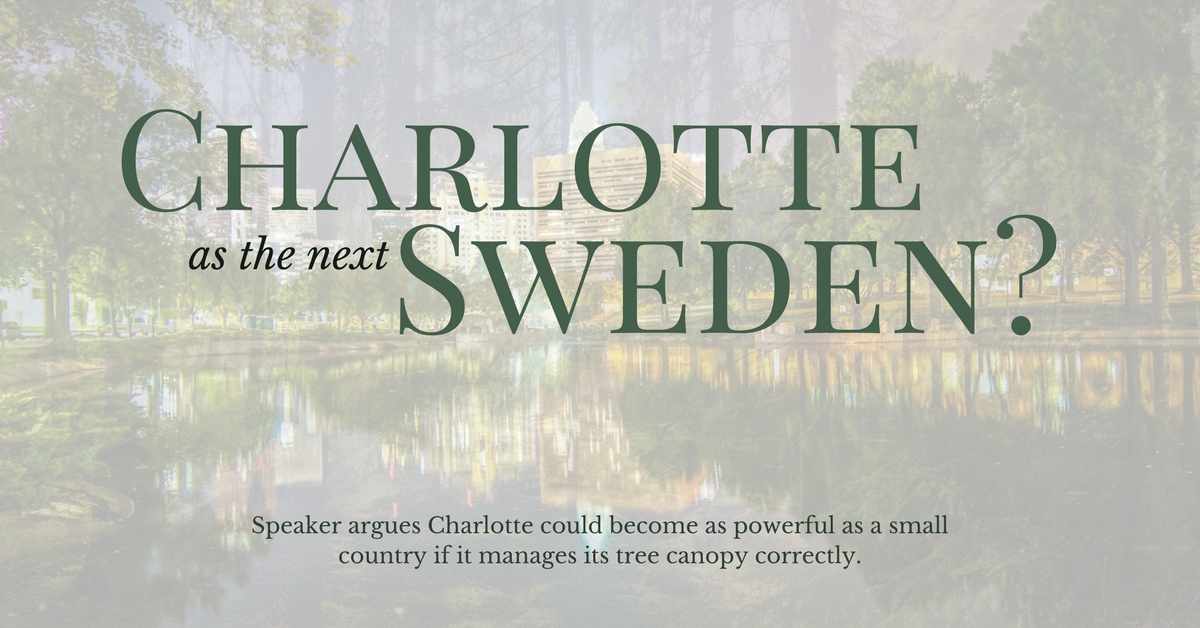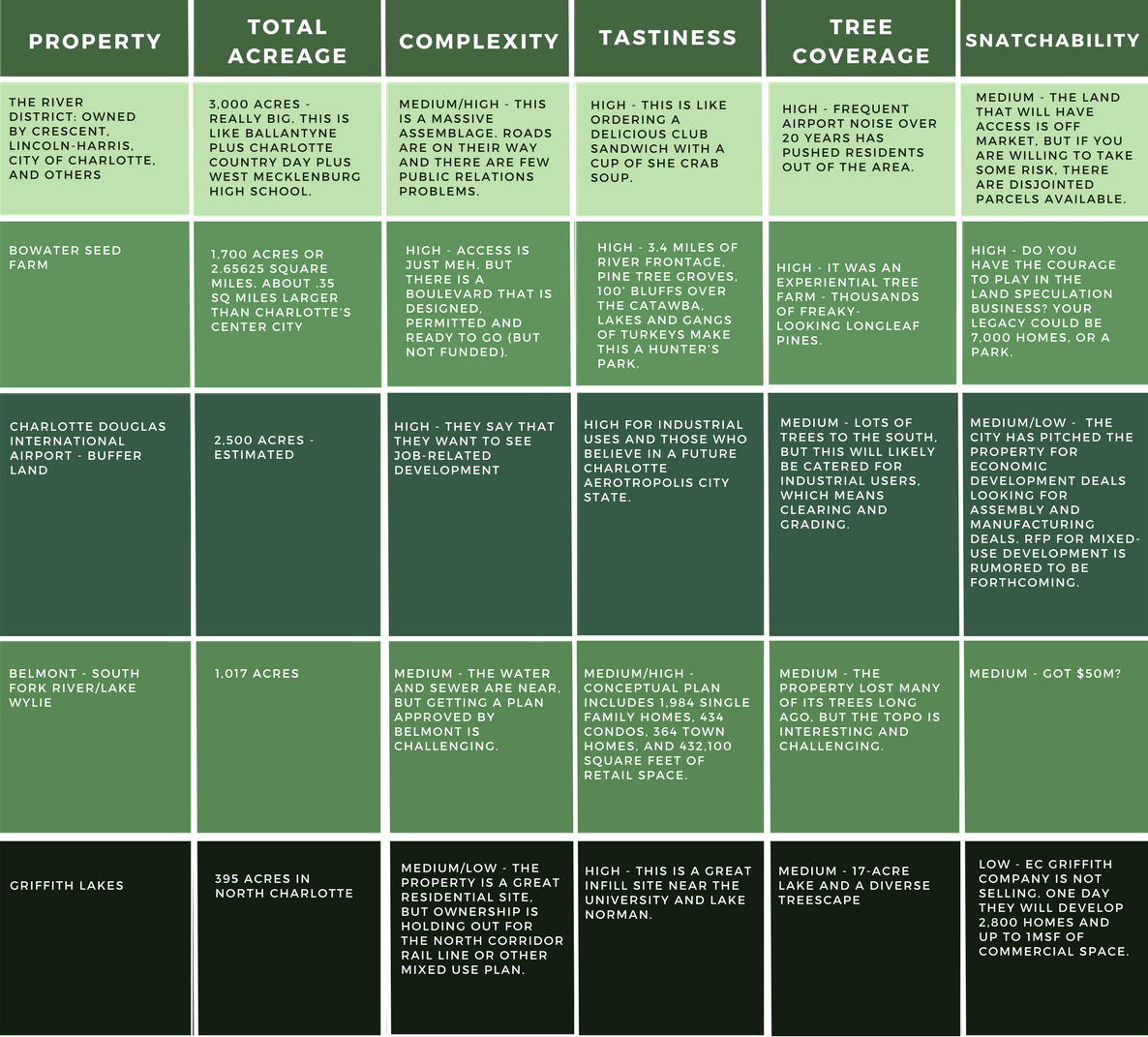Last week I attended the Foundation For the Carolinas annual meeting. I look forward to the Foundation’s annual meeting each year as it attracts thousands of Charlotte’s top leaders and never fails to provide new insight into our region. This year’s speaker, political scientist and TED Talks presenter, Robert Muggah, predicted that the Charlotte region could one day possess the political, economic and social force of a small country.
Think about it. Charlotte on par with, say, Sweden. It’s an intriguing idea.
Muggah’s presentation offered loads of data that make the point that Charlotte’s success will be based on proper planning around its natural resources. Our most valuable resource is land, which is rapidly being depleted. He offered up data showing how development is absorbing our tree canopy and his presentation admittedly was alarming to watch. Muggah, a Canadian who lives in Brazil and works with cities worldwide, said he sees a lot of opportunity for the Queen City.
Cities are expected to become more influential than the federal government over time as more decision making gets pushed down to state and city levels. Muggah says the San Franciscos, New Yorks, and Londons in the world are their own nationstates effectively, looking at factors such as GDP.
That means the real potential is with smaller cities such as Charlotte, where there’s available land and water, thoughtful planning, and a lot of people rapidly moving into these areas out of rural areas. Charlotte’s opportunity lies in how we use our disappearing canopy. I’m not talking about zoning ordinances, rather how we plan for and control items such as urban forest buffers, zoning regulations and swim buffers.
I took a look at the remaining land in our area, at what Muggah sees as our best opportunity.
Key tracts include what’s called the River District, a huge, multi-billion-dollar mixed-use community being developed by Crescent Communities and Lincoln Harris west of the Charlotte Douglas International Airport that rivals the community of Ballantyne in size.
About 94 percent of the remaining urban forest in Charlotte, or about 9,000 acres, is inside private property.
Here’s a chart I compiled looking at the largest tracts left and their feasibility for development.
To hear Muggah tell it, what’s shown in the above matrix represents Charlotte’s best opportunity to become as influential as a small country. The key is to be smart with the land we have left.
Cardinal Real Estate Partners is a full-service real estate firm that helps companies overcome complex assignments and helps owners navigate through issues such as PCOs, TCOs and swim buffers. Learn more about what Cardinal can do at Cardinal-Partners.com.








